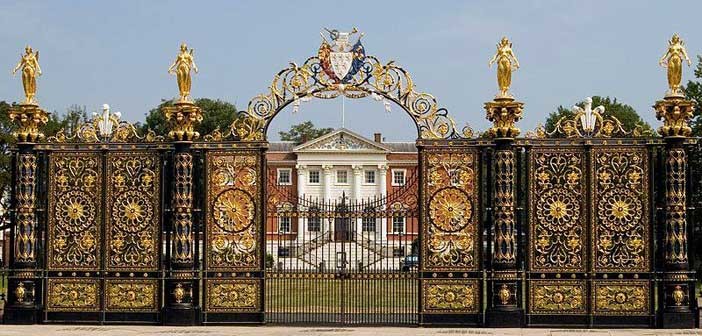LABOUR would not have overall control of Warrington Borough Council if last week’s local elections had been fought under a system of proportional representation.
They would have secured 28 seats on the council – compared with the 45 they actually won using the traditional First Passed the Post (FPTP) system.
The Conservatives would have been the second largest party group, with 14 and the Liberal Democrats would have come third, with 12.
In fact, the Liberal Democrats won 11 seats and the Conservatives only two.
The calculations have been done by local Green Party activists and show the claim made earlier this week by former Tory leader Paul Kennedy – who decided to retire from the council before the elections – that more people in Warrington voted Conservative than Liberal Democrat, was correct.
A total of 27816 voted Conservative while 24953 voted Liberal Democrat. Labour polled 59031 votes, however, so clearly earned the right to the largest number of seats.
If proportional representation had been used, UKIP would have won two seats, and the Greens and TUSC (Trade Unionist and Socialist Coalition) would have won one seat each.
It would have taken an unlikely alliance, but theoretically Labour could have been defeated on individual issues at any time over the next four years.
The conclusion reached by the Green Party is that FPTP “failed to deliver fair results for the people of Warrington”.
But the question is: Would Green Party supporters have gained any benefit from having one councillor? Similarly, would UKIP have been able to influence the council in any meaningful way with two councillors?
The allocation of council seats might not have been “fair” but proportional representation could have led to a situation where the council was frequently unable to make any decision at all.
Was Labour’s election victory “fair” for Warrington people?
2525 Comments
Share.





25 Comments
And how would the council seats be allocated ? Would you each ward be given a random person drawn out of a hat?
Good point Geoff, my guess is that it would be a list system, as used in the EU elections to elect MEPs, and where candidates clamour to be at the top of their party’s list. With regards to your final sentence, might I suggest that in some Wards in last week’s elections, that is in effect what voters got…..and by and large those who voted, voted for a Party rather than an individual. Must admit I still like the simplicity of the first past the post system, although as I seem to recall the Welsh assembly has a variance that is a combination of FPTP and a limited list system.
Anyway, with regards to Warrington, fair system or not, we are where we are, and those elected need to get on and concentrate on running the Council…..and all the best to them.
Well said Paul we keep looking up to the skies to see you fly past – tanks for giving us the flight of a lifetime 🙂
You were a great passenger Geoff….as was Jean…flying in general…..and particularly flying in a light aircraft….with me at the controls…. is not for everyone , and it was my great pleasure, it really was, to take you, as our Mayor, over the Town that you are the Mayor of. Going to try and get out in the aircraft tomorrow for a few hours.
Odd is it not? The election for PCCs, a breed of politician the electorate did not want but who were nevertheless foisted upon voters, was not conducted on “first past the post” system. Why could we not vote our councils in the same manner? That said, I believe party politics has no place in local elections. The only people who gain from the present system are party activists, but not those whose votes they seek.
I imagine that it would probably be a single transferable vote system as has existed for a long time in Northern Ireland and was introduced about 10 years ago in Scottish Local elections. Basically the wards would be made bigger to have 5-6 members with voters ranking their preferences, that way retaining a local and individual connection for the councillors. You could even just use the wards that we have although the bigger they are the more proportional the results should be.
It isn’t a perfect system obviously but there are calls every so often for it to be introduced in England and Wales. In theory both main parties would gain as well as lose from it (more Labour presence in rural and suburban areas for example). Whether parties could work effectively together if the system prevents majority control is another matter. I would hope they could but perhaps I am being overly optimistic.
I was in a three member ward and could walk and talk around it, until my knee gave in and winged – if it was made bigger that would lose the regular and close contact that I had during my 6 years – I would like to think that I knew the entire ward and a lot of people in it – the more people you have the harder the ability to get things done. I don’t only say that about politics but also about groups and decision making in general we were only debating this on the strategy school committee yesterday where I have been a governor of 15 years and also the Blind Society aka Visually Impaired People because in the latter we are going for CIO charity status.
It’s no good whining after you lose an election you went into with full knowledge of the rules beforehand, smacks of sour grapes to be honest. In local elections the electorate get to vote for individual candidates they feel will best serve them at a local level, it shouldnt be about party politics but obviously the main parties have a lot of resources to help gain the votes but if a local candidate has done a good enough job in the ward by getting things done his/her rosette colour shouldn’t preclude them from winning. Proportional representation at a local level would destroy the chances of an independent candidate being able to win any sort of representation at council. Didn’t you stand as an independent before becoming a Tory Paul?
As the ‘activist’ who put together the statistics, I wouldn’t say it’s ‘sour grapes’ at all. Of course we went into the election with full knowledge of the rules – but that doesn’t change the fact that it’s an unfair system. The days of two-party politics in this country are long gone and FPTP fails to cater to our multi-party political system. The aim of a democracy is that the authorities represent the will of the people and that the authorities can then be held to account, but this is not the case when a party which wins less than 50% of the vote receives not only a majority but a majority so great that it is almost impossible for them to be held to account on decisions such as the cutting of funds to the YMCA.
As much as I would rather the Conservatives and UKIP didn’t gain more power on the council – which they would under a proportional system – it is vital that we have a fair and democratic electoral system in this country.
As I understand it the YMCA was a loss of a contract not withdrawl of funding for the YMCA. I have got to know them well during my two years and given them some help and spoken at their annual meeting and AGMs so they know my views. Things are changing and WBC don’t have the money they used to have – I know this from painful experience of helping save Dial-a-Ride as a trustee I was liable for a shed load of cash if it went into debt – it didn’t we totally re-organised the mode. We have done this with the help from the 3 other organisations who scrutinised our plans and backed them – this was a massive ask and a horrible Christmas for staff, users and trustees – but we are up and running. The YMCA are now being Norad and she is helping organise fund raising events with one tomorrow in Thelwall just check out the YMCA Facebook and take part. Many charities are going to have to look internally at their operational model and knock on Warrington Voluntary Action’s door – it’s very very hard surviving these days.
Yes I did, but only in the 2005 General Election, and then retired at these elections.
Positron, I would disagree on there being no place for parties in local elections. Perhaps in theory local parties might be preferable over national ones but unless that is enforced by law (like for example in some parts of Canada) I can’t see it happening really. The current system does not make it easy for independents, (as was shown in Woolston and Rixton for example) and a more proportional system maybe would. Often though where you have a significant number of independents they gradually form a group with some shared views, policies and a leadership structure and so in effect become a party themselves.
Paul Jackson, not necessarily, it depends on the system. If I remember rightly there is evidence suggesting that introducing a form of pr with a local link leads to a (fairly small) increase in turn out.
If two I dependent candidates with complely opposing views stand and between them gain enough votes for a single seat in the Council, which one gets chosen?
Would the Tories be as keen to bring this in at General Elections?
Doubt it, as I recall, it is not the policy of the Conservative Party.
I bet its not, they could never get in if it was. I would happily give up a few council seats in Warrington if it meant the removal of the selfservatives at a national level 😉
IT seems to have been forgotten that these figures were produced by the Green Party who would obviously benefit from some form of PR.
Of course we would – but so would the Conservatives and UKIP, to whom we are so fundamentally opposed. This is an issue which transcends party politics.
No, these figures were produced by the electorate, the Greens simply totted them up.
The article gives one of the most common criticisms of proportional voting systems: “proportional representation could have led to a situation where the council was frequently unable to make any decision at all.” Whilst this is potentially true, if we view political decisiveness as the most important factor – even at the expense of democracy – then we may as well scrap elections altogether and establish a dictatorship which can impose the views of a political minority even more effectively. Therefore the validity of this criticism is limited.
Isn’t that what we are essentially saddled with now? We have one party politics nationally, with one part of the establishment – the Lords, with approaching 1000 unelected members, and god knows how many quangos whose members are ‘selected’ on a jobs for the boys/girls basis from a pool of has-beers or wannabes; and the Conservatives in charge in the Commons for the foreseeable future.
Don’t underestimate the casting vote of the Mayor 🙂 one thing I never got to use but I did have to tell some people to shut up and sit down and behave – I wonder if behaviour would get worse it the voting was even closer – the Maoyr would be even more active in trying to make sure people are heard unlike the House of Commons.
Main problem with all forms of PR is that they confuse some people. There is an argument that people who can’t understand a simple voting simple shouldn’t be voting at all but it is not one I would subscribe to. But I do know one person, quite intelligent and with very strong political views, who did not understand the single transferable vote system used in the PCC election so didn’t vote at all, so we should not over-estimate the intelligence of the electorate!
Nor under-estimate it either. One of the main reasons our elections consistently have low turn outs is because most voters are sufficiently intelligent to realise the system favours two party politics, the activists and the politicians involved but offers little benefit for the electorate. Why bother voting if it inevitably means you will end up with the candidate you don’t want?